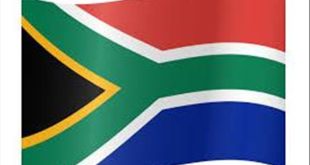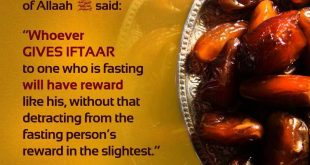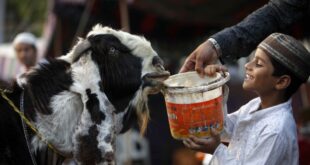 Editor’s note: In the first three parts of this Series, the author has explored some significant features of the formation of Islamic identities in Africa.. Here, he continues to trace and study other important features.
Editor’s note: In the first three parts of this Series, the author has explored some significant features of the formation of Islamic identities in Africa.. Here, he continues to trace and study other important features.
“Hakuri” or patience and forbearance: Greene pointed out that many of Hausa customs, as well as their language, reveal the status of such moral value among them.
For, the conventional daily salutation phrase is “ina hakuri?” which means “how is your forbearance in life? How are you”, while the phrase of a apology to a beggar is “Allah ya ba hakuri”, meaning may Allah grant you patience? Or may Allah enrich you!
– Rationality or acumen and cleverness: A wise man – as defined by Green according to the Hausa view – is the one who behaves or speaks well in a manner that suits the occasion, while the opposite is an ignorant person.
– “Kunya” or bashfulness and sense of disgrace: What distinguishes this value is its collective dye, since disgrace in the view of the Hausa does not befall the main responsible person for it, but it infiltrates and diffuses a complex network that knots the Hausa social fiber itself.
As it vertically extends, it also horizontally extends in time, going beyond its perpetrator to affect his/her offspring. Therefore, this value forces the individual/community to adhere to the moral limits acknowledged among the Hausa, even if it contradicts with Almighty Allah’s saying, {And no bearer of burdens will bear the burden of another} (Al-Israa’ 17: 15)
– “Mutunci” or noble manners and good treatment of others: It is among the markers of a good man, which is affirmed through man’s relation to those inferior to him.
Hence, Hausa express hurting the feelings of an individual or affronting them by the phrase “eating their dignity”, an expression that parallels the sensory image of eating their flesh.
– “Adalci, Hikima” which means justice and wisdom: Greene illustrated that the value of justice is that which encapsulates the rest of values in terms of the Hausa’s judging a person to be good. Here, justice means that a person inures himself/herself to do that which “duty” dictates on him no matter the circumstances or impediments.
Such are the group of moral values that Hausa deem inevitable for the good person, regardless of their social status, be they presidents or subjects, rich or poor.
It is clear in this regard that such moral values are identical to what is preached in Islam. And if Greene asserted that such values among Hausa precede the Islamic presence, he still affirmed on many occasions that Islam is a strong enforcer of such values.
This primarily manifests in brief linguistic borrowing from Arabic language (the language of Islam) to express these mentioned values, which is not a haphazard borrowing, but is rather a conscious one where the individual term carries along its religious valence.
The powers opposing Islam have already gained precedence by attempting to sever the bonds of fraternity, solidarity and convergence of identities among Muslim peoples
Furthermore, the Islamic influence clearly manifests in the denotative shift that occurred to a number of these values, from their narrow and limited conventional denotations to their profound and broad Islamic indications.
So, “Adalci” or justice, for instance, has come to mean “fear of Allah”. Therefore, one of the characteristics of an ideal Hausa leader is “belief and devout observance of worship acts”.
To sum this point up, what is claimed by each of Fulani and Hausa as a necessary constituent of their identity is, in fact, no more than a necessary constituent of the Muslim’s identity anywhere in the world.
Therefore, both groups have – consciously or unconsciously – borrowed most of Arabic terms bearing Islamic weight in reference to what they claim to be among their own specificities.
Sixth: The Emergence of a Semi-ethnic Islamic Identity
If Islam has clearly influenced a group of tribes, restructuring and remolding their identities, it has also been the direct cause behind the emergence of a number of “semi-ethnic” groups that formed in a pure Islamic womb, including Jakhanke and Torodbe groups that emerged as a result of Islamic education and Da`wah activity in Africa.
Torodbe and the Emergence of a Semi-ethnic Islamic Identity
Torodbe is considered an excellent model for the illustration of Islamic influence on the formation of identities in Africa, since this section has developed through a purely Islamic formation out of the remnants of freed and runaway slaves, who used to live under the yoke of injustice and exploitation by the class of warriors in Sudan lands.
In light of this oppression, Islam alone would be the element uniting the Torodbe, in which they found an outlet and a safe refuge through which to get rid of such condition.
Nothing is more indicative of what is stated above than the appellation itself, as the verb “torade” in the Fulbe language means “to ask”, while “Torodo” – singular of Torodbe – indicates supplication, asking or begging.
This refers to a group of the Torodbe that formed as a result of Islamic scholarly and missionary activity that emerged in the region of the Western Sudan.
Then, students would gather in scholarly sessions and Sufi centers around Sheikhs to receive knowledge and to carry out missionary tasks and handicrafts, in which they engaged, knowing that they were marked for their ascetic life.
Among their educational methods was that students would roam the villages begging. They are called “Torodo” in the Fulfulde language, of the Fulani, or “Toronkawa“ in the Hausa language, meaning beggars.
So, this description has become a designation for them, and they are known in Islamic literatures, in West Africa, as “Turudiyya” or “Torodbe”.
Such description is in fact no more than a name for a specific tribe, though it mostly designates the Fulani and specific scholarly and missionary clans, including the Bari clans affiliating with Shaykh Ahmadu, the Tall clans affiliating with Umar Tall, and the Sī clans affiliating with Shaykh Mālik Sī.
Distinctive Characteristics of the Torodbe
There is no tribal source that unites them: Rather, they are a mixture of diasporic tribes that suffered slavery, including Kunta, Fulbe, Jakhanki, Manding Hausa, Sarakhuliyya, Wolof, Seres Ibo, in the region surrounding the Senegal River or what is now known as Senegambia.
– Speaking in the Fulfulde (Fulani language) and Arabic literacy for the proficient among them. So, Fulfulde was the common language among them, while Arabic was the language of correspondences or the like.
– Dedication to knowledge seeking and preaching, and to trade in itinerant groups: They abandoned handicrafts and professions that are considered lowly in Futa Turo community, like “somono (sea fishing)”, “sulbalbe (folk medicine)”, “bailo (smithery), and the like of handicrafts.
 In John Ralph’s terms, the “craft of Islam”, that is knowledge and Da`wah, is the one that ensured solidarity and cohesion for the Torodbe, and in turn their turn from the state of inferiority into a state of social power and distinction.
In John Ralph’s terms, the “craft of Islam”, that is knowledge and Da`wah, is the one that ensured solidarity and cohesion for the Torodbe, and in turn their turn from the state of inferiority into a state of social power and distinction.
For, the quality of knowledgablility was then, in the seventeenth century, the shortest means to advancement on the social ladder in the Sudanese land.
Rather, the Torodbe came to power by establishing an Islamic caliphate that was known as “Almamy (of the Imams’ State)”, as their leaders used to work as Sheikhs, scholars and Imams.
In this regard, historian John Ralph says that the Torodbe boisterously entered into the history of the Islamic Sudan with the revolution of Imam Malik Sy, which is crowned with the establishment of the Sissibe group in Bondu (ca 1690 A.C.). It was considered the first successful model of rule and government in the lands of Western Sudan.
The initial achievements of the Torodbe before their establishment of the Islamic caliphate in Futa Turo, involve the following:
– Eliminating tribal disparities in Futa Turo community through shifting affiliation from the domain of blood relation and lineage to a pure Islamic domain, where loyalty goes to Islamic creed and to the desire for release from slavery only.
Among the proofs of this point is that the first group that emigrated with the founder Imam Malik Sy to Bondu was head by three leaders, Tamba Kante (blacksmith), Sevi Laya (griot) and Keri Kafo (slave).
– Uplifting the Futube and Guirobe tribes, who belonged to the primitive Fulbe, from primitivism and cave and forest life to stable agricultural tribes after their embracement of Islam.
– Stirring up the spirit of liberation and solidarity for the purpose of obtaining freedom for all. When Imam Malik Sy gained power and emigrated to Bondu, large numbers of tribes and individuals came to him with no condition, other than embracement of Islam.
Later on, some masters would approach him and then would purchase slaves to free them. Then, the spirit of solidarity was peaking among Torodbe student and Sheikhs, and among the group members as a whole.
Hence, affinities thrived among them regardless of former tribal restrictions or social disparities. So, Bondu city became a safe refuge for all those among the people of the Mali and Senegal region seeking to engage an identity with a religious dimension.
To Be Continued…
Source :http://www.onislam.net
 Sri lanka Muslims Web Portal Diversity and Inclusiveness
Sri lanka Muslims Web Portal Diversity and Inclusiveness



